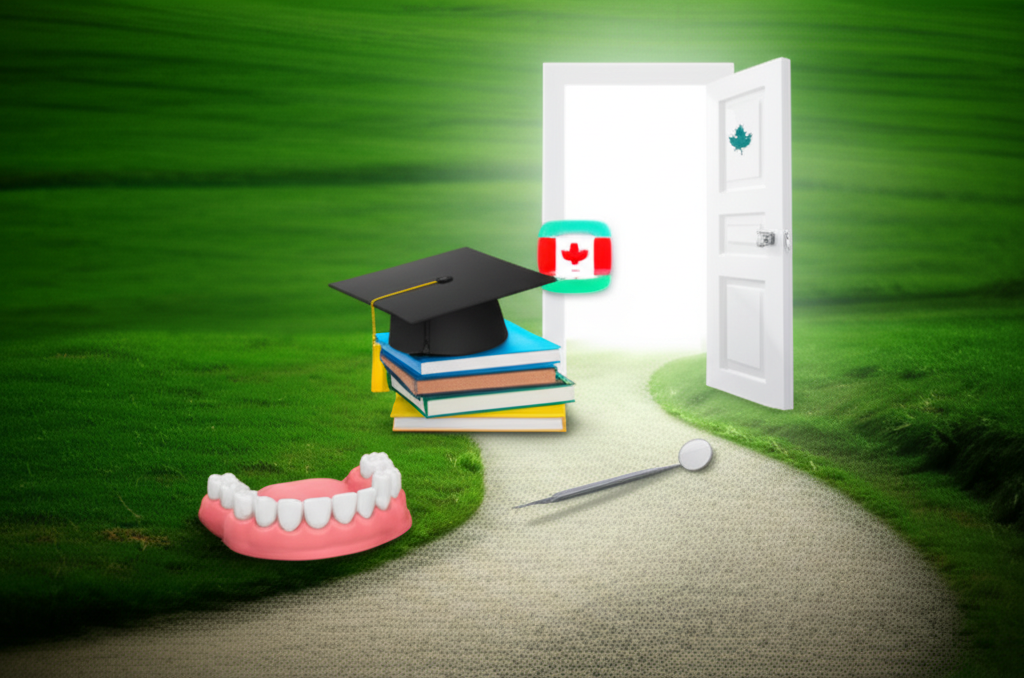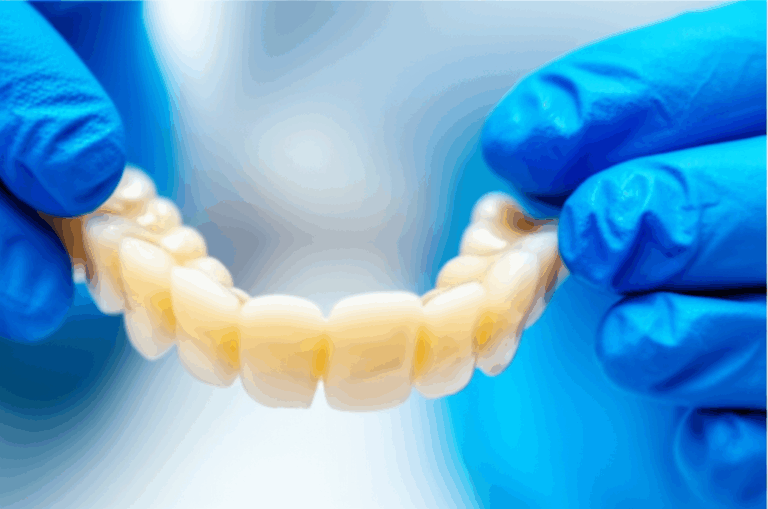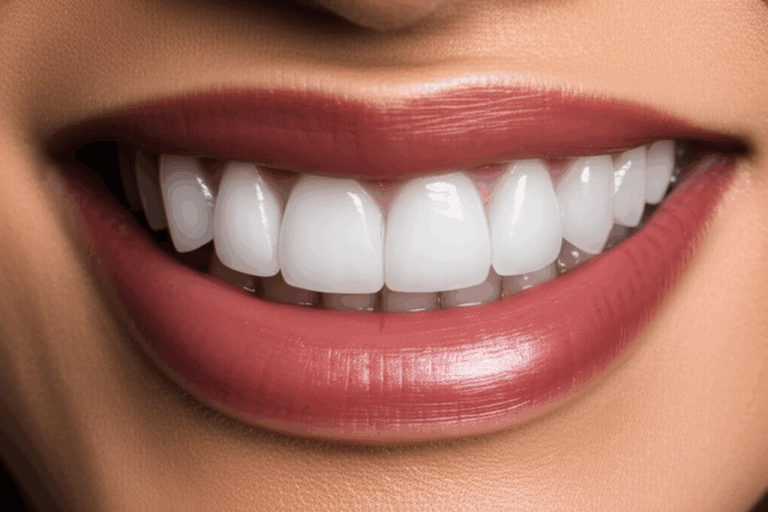
Your Complete Guide: How to Become a Pediatric Dentist in Canada
Choosing what to do for your job can sometimes feel confusing. If you like working with kids and want to help them have healthy, happy teeth, becoming a pediatric dentist in Canada could be perfect for you. This guide will show you—one step at a time—what you need to do to become a pediatric dentist in Canada. You’ll learn about school, special tests, job options, and even what skills and attitudes you need to do well. The way is not easy, but I’ll help make it as simple as possible.
Table of Contents
What is a Pediatric Dentist?
First, let’s explain what a pediatric dentist does. Pediatric dentists are dental experts who mainly help kids with their teeth, from a baby’s first tooth all the way to when they are teenagers. They stop and fix dental problems, teach families how to keep teeth clean, and make the dentist’s office a friendly place for kids.
Unlike regular dentists, pediatric dentists learn about how kids think, how to help with their worries, and how to treat issues that only children have. They often help children who have special medical needs.
The Problem
It can be hard for kids to get the dental care they need. Lots of kids are scared, some have special health issues, and parents might not know where to go. Canada needs more dentists who are good at looking after kids.
How Pediatric Dentists Help
Pediatric dentists make dental visits better for families, treat early childhood tooth decay, and even help after kids get hurt while playing. Their skills really help keep children healthy for life.
Why Choose Pediatric Dentistry in Canada?
Do you like making kids smile? Canada really needs more pediatric dentists because families want their children to have the best care. Being a pediatric dentist brings:
- Good pay and plenty of jobs
- Variety—you can work in dental offices, hospitals, or do research
- You can help stop pain and disease before it starts
Here are some simple facts to know:
| Aspect | Details |
|---|---|
| Years of Education | 9-11+ years after high school |
| Salary Range | $150,000 – $350,000+ per year |
| Job Openings | High demand across Canada |
| Workforce Size | 800-900 pediatric dentists |
[Source: Canadian Dental Association, Royal College of Dentists of Canada]
Some dentists trained in other countries might need extra checks, but most of the steps are the same. The best part? Knowing you help kids feel healthier and happier every day.
What Schooling Do You Need Before Dental School?
Before you can start treating teeth, you need a strong school background. Most future dentists begin with a university degree, often a Bachelor of Science (B.Sc.). Here’s what it means.
Key Requirements
- Bachelor’s Degree: Usually 3-4 years (B.Sc. is common, but not the only choice).
- Courses: Most Canadian dental schools want high grades in biology, chemistry (including organic chemistry), physics, English, and biochemistry.
- GPA: You need good marks, usually over 3.6 out of 4.
But it’s not just about grades. Dental schools want students with good life skills, too. Volunteer at a local hospital, watch a pediatric dentist work, or do activities that help with hand skills (like painting or learning an instrument). Helping in your community and showing you can lead are also important.
Problem
Lots of students worry about meeting these tough school requirements. It can feel hard.
Solution
Get real-world experience as soon as you can! Spend time with a pediatric dental specialist or help at a health clinic for families. You’ll get to see what the work is like and show dental schools that you’re excited to learn and help others.
How Do You Pass the Dental Aptitude Test (DAT)?
Before dental school, there’s one big test: the Dental Aptitude Test (DAT). This test checks if you know enough science and if your hands and mind are ready for dental work.
What’s On the DAT?
- Biology and Chemistry: Basic science questions
- Reading Comprehension: Can you understand dental articles?
- Perceptual Ability Test (PAT): Can you picture and solve 3D puzzles?
- Manual Dexterity (optional): Are your hands steady enough for dental work?
Agitate
You might hear that the DAT is super hard—lots of people say it’s easy to get stuck or feel stressed.
Solution
Stay calm and start studying early. Use practice tests, study books, and ask your teachers for help. The DAT checks how you solve problems and how you work under time pressure—not just what you can memorize. Many students succeed by organizing a study group or joining a special DAT class.
Remember: Canadian dental schools want standout scores, but help is there if you ask for it.
How Do You Get Into a Canadian Dental School?
Getting into dental school is tough—only about 4-10% of applicants are accepted. But don’t let that stop you. Here’s how to stand out.
Application Steps
Canadian dental schools grant two degrees: DDS (Doctor of Dental Surgery) and DMD (Doctor of Dental Medicine). Both are equal here. Here are some top dental schools:
- University of Toronto Faculty of Dentistry
- McGill University Faculty of Dental Medicine
- University of British Columbia Faculty of Dentistry
- Western University Schulich School of Dentistry
- Dalhousie University Faculty of Dentistry
Problem
It’s normal to feel worried about how to stand out from the crowd.
Solution
Talk about your love for helping kids, stories from spending time in a pediatric dentist’s office, and the skills you picked up—like how to talk to children or help kids who need extra attention.
Don’t forget to look at Canadian dental school websites and student life in dental school so you can match your application to their needs.
What Is Pediatric Dental Residency?
After four years of dental school, you’re now a general dentist. To be a pediatric dentist, you need more school—a special residency.
What’s Involved?
- Length: Usually another 2-3 years
- What You Learn: More about kids’ behavior, advanced treatments, and helping kids with special medical needs
- Where You Study: Accredited Canadian dental schools in places like Toronto, Alberta, British Columbia, and Montreal
Residency spots are few—only about 25-35 across Canada each year. Programs want people who love working with kids and show top effort in school.
Problem
Since there are so few spots, it’s easy to worry you won’t get chosen.
Solution
Do your best in dental school, get to know your teachers well, and spend time helping out with kids’ dental programs. Great letters and lots of experience are what schools want to see.
Want to know more about real practice? Sometimes you’ll get to use new technology, like working in a 3D dental lab, learning about digital records, or making retainers for small mouths.
How Do You Get Licensed and Certified?
You’ve finished dental school and residency—what’s next? Now you have to pass more exams and get your license.
Steps to Licensure
Without these exams and paperwork, you can’t officially call yourself a pediatric dentist in Canada.
Problem
All these tests and forms can feel confusing, especially after so much school.
Solution
Don’t do it by yourself. Schools and dental groups want to help, and there are classes to get you ready for both NDEB and RCDC tests. Employers may also help you learn about local rules.
Many pediatric dentists work with dental ceramics labs to make sure crowns and fillings for kids are strong, safe, and a good fit.
What’s Life Like as a Pediatric Dentist?
Let’s talk about your work life! As a pediatric dentist, every day is different. You might:
- Treat young children with tooth decay
- Help fix teeth that grow in the wrong way
- Give emergency care after sports accidents
- Teach families about brushing and healthy foods
You can work in many places: dental offices, hospitals, schools, or community clinics.
What About Income and Job Security?
Pediatric dentists in Canada earn about $150,000 to $350,000 or more each year. It depends on where you live, hours you work, and if you run your own office.
Families everywhere need pediatric dental care, especially in big cities and small towns. Job safety is high, and you can even grow your own business or teach others if you want.
If you want to run your own business, learning about dental practice management is important.
What Are the Costs and Challenges?
Becoming a pediatric dentist is rewarding, but it takes a lot of work. Let’s look at what you’ll spend:
The Costs
| Expense | Range (CAD) |
|---|---|
| Dental School Tuition | $80,000 – $200,000+ |
| Living Costs (4 yrs) | $40,000 – $70,000 |
| Residency Tuition | Usually some cost, but not as much |
You can get student loans, and there are some special scholarships just for dental students. But you might finish school with some debt.
The Challenges
- It takes at least 9-11+ years after high school for all the training
- Getting in is hard—competition is tough
- Lots of work (classes, clinics, tests, studying)
- Education costs a lot
Agitate
Think about that: years of hard study, tough exams, and possible debt. That can feel scary.
Solution
Remember the good you’ll do. When a scared child comes in and leaves smiling, all your hard work will feel worth it. You’ll help people every single day.
Is Pediatric Dentistry Right for You?
Now for the big question: Is this what you want to do?
Think About These Qualities
- Do you like being with children?
- Are you patient and kind?
- Can you work in a busy, noisy place?
- Are you okay with lots of study and always learning new things?
- Do you have steady hands and like solving problems?
If you answered yes most of the time, pediatric dentistry could be for you.
Canada needs people who care about kids’ health and happiness.
FAQs: Pediatric Dentistry in Canada
Q: How long does it take to become a pediatric dentist in Canada?
A: About 9-11+ years after high school, counting university, dental school, and residency.
Q: How hard is it to get a pediatric dental residency?
A: Very hard—less than 35 spots for all of Canada every year.
Q: Do I need to take special exams?
A: Yes. You take both the NDEB license test and the RCDC specialty test.
Q: Can I work anywhere in Canada with my certificate?
A: Yes, once you register with the dental group in your province.
Q: What places hire pediatric dentists?
A: Dental offices, hospitals, community health clinics, and universities.
Key Takeaways
- Pediatric dentists help kids get healthy teeth and gums.
- You need university, dental school, and special training for children’s dentistry.
- Be ready for 9-11 years after high school, and lots of competition.
- You must pass the DAT, NDEB, and RCDC exams.
- Pediatric dentists in Canada have good jobs and pay.
- You make a real difference—helping kids feel happy and healthy.
- If you like kids, are patient, and want to help, this path might be perfect for you.
Ready to start thinking about this job? Start by talking to dentists in your area. Look for ways to shadow, volunteer, or learn more about things like digital dental records and removable denture labs. Every step brings you closer to helping kids all over Canada have bright, healthy smiles!








